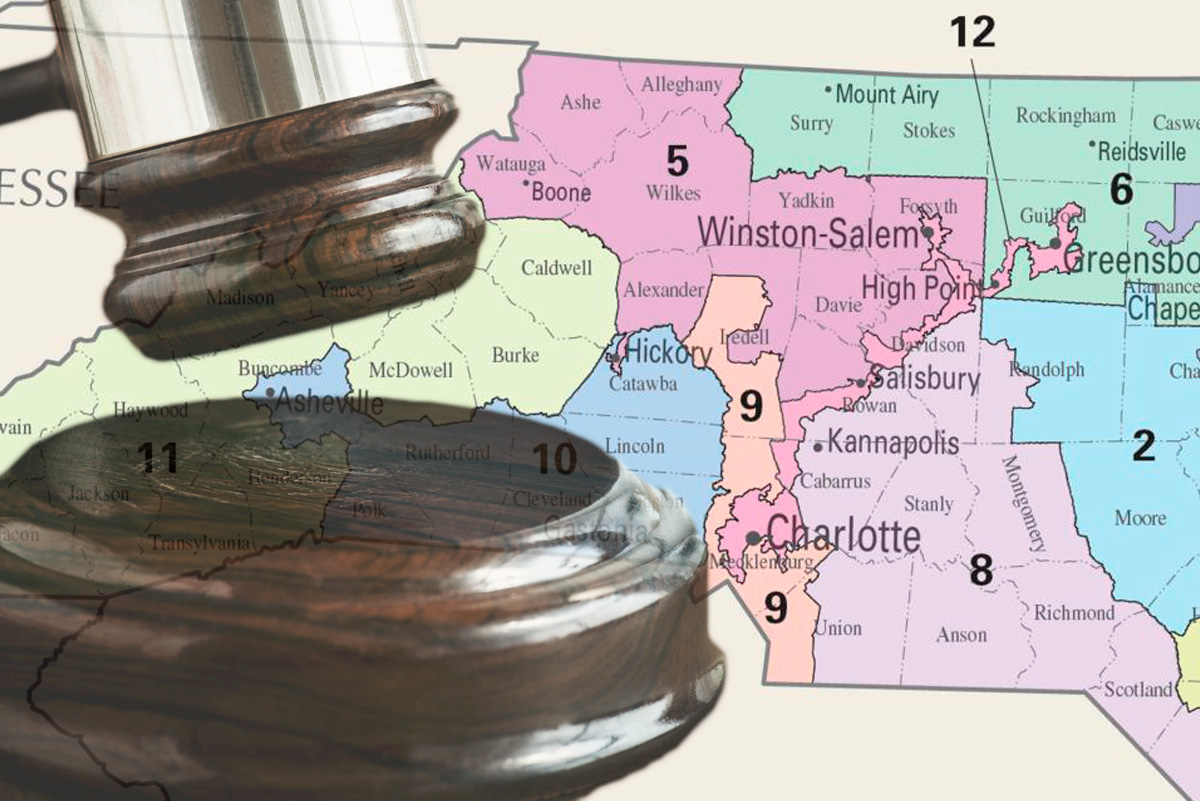As the Supreme Court prepared to hear arguments in Moore v. Harper today (Dec. 7), conservative legal experts described a misguided effort that, even if successful, might backfire on its GOP sponsors.
But, they were clear, if the U.S. Supreme Court decides the plaintiffs’ “Independent State Legislature” theory has merit, elections nationwide could be thrown into chaos.
During a press briefing hosted by Common Cause and the Southern Coalition for Social Justice on Dec. 6, retired federal judge Michael Luttig, who spent 15 years on the U.S. Court of Appeals after working in the Reagan and first Bush administrations, and Ben Ginsberg, who’s advised a host of campaigns and politicians, including every GOP presidential nominee since Bush Sr., discussed the case, what its effects could be and how they think it might turn out.
“The Court will decide essentially all the most important election law issues under the U.S. Constitution, for the presidency, Congress, the drawing of legislative congressional districts,” Luttig said. “It’s the most important case for American democracy since the founding; that’s not hyperbole or overstatement.”
The plaintiffs in Moore v. Harper are claiming that the Constitution’s “elections clause” gives state legislatures alone absolute oversight over all aspects of local and federal elections within their states.
Of this so-called “independent state legislature” theory, Ginsberg said, “We ought not be misty-eyed about from where it sprung. This theory gained prominence, really, after successful Republican redistricting in 2010, a pretty valid political observation that a source of long-term strength for the Republican Party and particular programs could be implemented … if state legislatures were given more power.”
An “unwarranted assault” on elections
This so-called “independent state legislature” theory would “be disruptive and confusing to the way we run elections at a time when trust in elections needs bolstering, not other unnecessary, unwarranted assault,” he said, and offered five specific examples:
- “It would impact who decides who wins elections… irrespective of the popular vote. It would be the first time since our founding that, essentially, a legislative branch could go unchecked,” he said, and allow elected officials to keep themselves in power through unlimited gerrymandering.
- Gubernatorial vetoes would become irrelevant, along with referenda and initiative processes, and procedures that impact federal elections, such as redistricting criteria, registration, absentee voting, results certification would all become subject to the whims of whoever was in power in the legislature.
- “You can’t take away federal constitutional protections,” Ginsberg said, but “at a time when the U.S. Supreme Court seems fairly intent on trying to reduce its election law caseload,” Ginsberg said, a ruling for the plaintiffs would make federal courts “the only island left in the sea” for those challenging state legislators’ election oversight, creating “an explosion of federal litigation, right close to the election.”
- Also, Ginsberg said, “It would really have a bad impact on what happens in elections in emergencies.” When it comes to legislatures, he said, “quick movement into the breach is not their forte, yet the rights of people to be able to cast ballots would be at stake.” Past elections have had to contend with circumstances such as Hurricane Sandy (2012), Hurricane Katrina in 2005 and the 9-11 attacks of 2001.
- And then, Ginsberg said, “It’s worth talking about the unintended consequences.” Whatever gains a favorable decision in Moore v. Harper might give the GOP in North Carolina could easily be offset in other parts of the country.
Congressional maps
“My view of the ’21-’22 redistricting process,” Ginsberg said, “was that Republicans had a much better cycle in terms of what the courts did than Democrats. Republican courts upheld maps in states like Texas and Alabama and Florida. In states where Democrats control both branches of the legislature they suffered legal setbacks – New York, Maryland, New Mexico.
“I’m not sure if you unwind the New York map, which would be possible if ISL is adopted, that Democrats don’t pick up enough seats to take over the House of Representatives.”
Moore v. Harper, named for North Carolina speaker of the house Tim Moore and Rebecca Harper, one of the plaintiffs who first challenged North Carolina redistricting, seeks to revert the state’s court-ordered 14 Congressional district maps back to the ones the GOP-dominated legislature had approved. Those maps originally appeared to favor Republicans in at least 10 of the 14 races, but given revised maps, the state’s evenly divided voters split the delegation 7-7.
In New York, the Democratic Party-controlled state legislature’s 26 new Congressional district maps favored Democrats in 22. But when a court agreed with GOP plaintiffs that the maps were unfair and ordered new ones, Democrats won only 15.
Consequences for democracy
“It’s perhaps the most politically fraught case ever decided in the Supreme Court, with grave consequences for federal elections and democracy itself,” Luttig said. “But within the Supreme Court, it is nothing but a question of constitutional interpretation.”
“I do not believe that there is any support whatsoever in the constitutional text, nor in the history of the framing of the Constitution, that would support that most aggressive version of the independent state legislature theory the petitioners are arguing for,” Luttig said.
“I do not believe the Supreme Court will hold that. I believe the only real question before the court is ‘to what extent does the Supreme Court have the power to constrain the state supreme court’s power in the interpretation of the state’s own constitution?’
“That’s what I expect the court to do. I expect that the standard they adopt will be exceedingly narrow and exceedingly deferential to the state supreme courts.”
“Allowing state legislatures to go completely unchecked in the sensitive area of federal elections, I think, is unlikely,” Ginsberg agreed.





